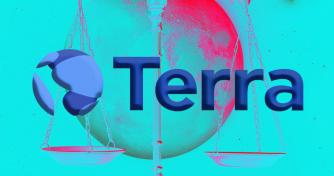 Singapore regulator responds to Terra collapse; plans to involve public in stablecoin regulations
Singapore regulator responds to Terra collapse; plans to involve public in stablecoin regulations Singapore regulator responds to Terra collapse; plans to involve public in stablecoin regulations
Singapore's financial regulator confirmed that the impact of Terra's collapse on its economy was minimal and that it is working on stablecoin regulation that will include feedback from the public.

Cover art/illustration via CryptoSlate. Image includes combined content which may include AI-generated content.
The Monetary Authority of Singapore (MAS) in response to a parliamentary inquiry, shared insights on how the Luna collapse affected the economy and laid out plans to engage the public in its stablecoin regulation.
The Minister in charge of MAS Tharman Shanmugaratnam in addressing the issues raised stated that the collapse of the Terra ecosystem has reinforced the high risks involved in investing in the cryptocurrency ecosystem.
On the health of the mainstream economy, Shanmugaratnam noted that banks in Singapore had insignificant exposures to cryptocurrencies, hence the overall impact on the economy is minimal. The MAS however could not quantify the number of Singaporeans affected by the collapse, due to limited customer data.
The Minister also addressed concerns about stablecoin regulation. At the moment, stablecoins are considered digital payment tokens (DPTs) alongside cryptocurrencies like Bitcoin under the Payment Service Act. The regulators are however working to treat stablecoins as a unique asset class with a focus on regulating the stability of the peg and reserve requirements. Shanmugaratnam noted that the MAS was looking to work with the public in regulating stablecoins.
State of Crypto Regulation in Singapore
Singapore’s Payment Service Act became effective in January 2020 to lay the framework for payment systems and payment service providers to operate in the Asian country.
In January 2022, the MAS issued a guideline to restrict crypto service providers from publicly advertising or marketing cryptocurrency investments. The regulation also saw the shutdown of crypto ATMs in the country.
Earlier in July, the regulators expressed intentions to set new rules to protect retail investors. The rules as explained will place limits on retail participation, and on the use of leverage when transacting in cryptocurrencies.
In the wake of the Three Arrows Capital collapse, the MAS on June 30, reprimanded the hedge fund for providing false information and exceeding assets under the management threshold.
MAS today reprimanded Three Arrows Capital Pte. Ltd. for providing false information to MAS, and exceeding the assets under management threshold allowed for a registered fund management company. #enforcement #regulations
Read in full: https://t.co/LXWKTCTymO
— MAS (@MAS_sg) June 30, 2022
MAS is still with crypto
Despite the call for more crypto regulations in the region, the MAS is still accommodative to crypto companies that play by the Payment Service Act. It is still open to granting licenses for digital asset providers looking to operate in the region. So far, Singapore has granted 14 licenses and in-principle approvals to companies including Crypto.com, Gemini, Coinbase, and Binance.
When asked if Singapore was still pushing its plan to be a cryptocurrency hub, Shanmugaratnam stated:
“From a developmental perspective, MAS’ aim has been and remains to enable the growth of an innovative and responsible digital asset ecosystem.”
































































